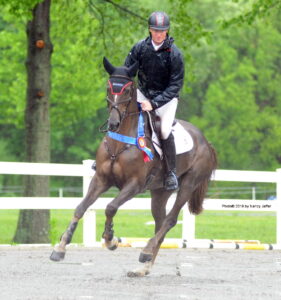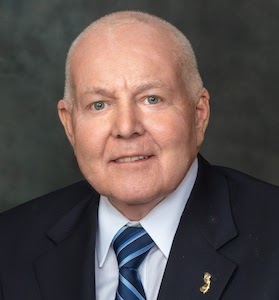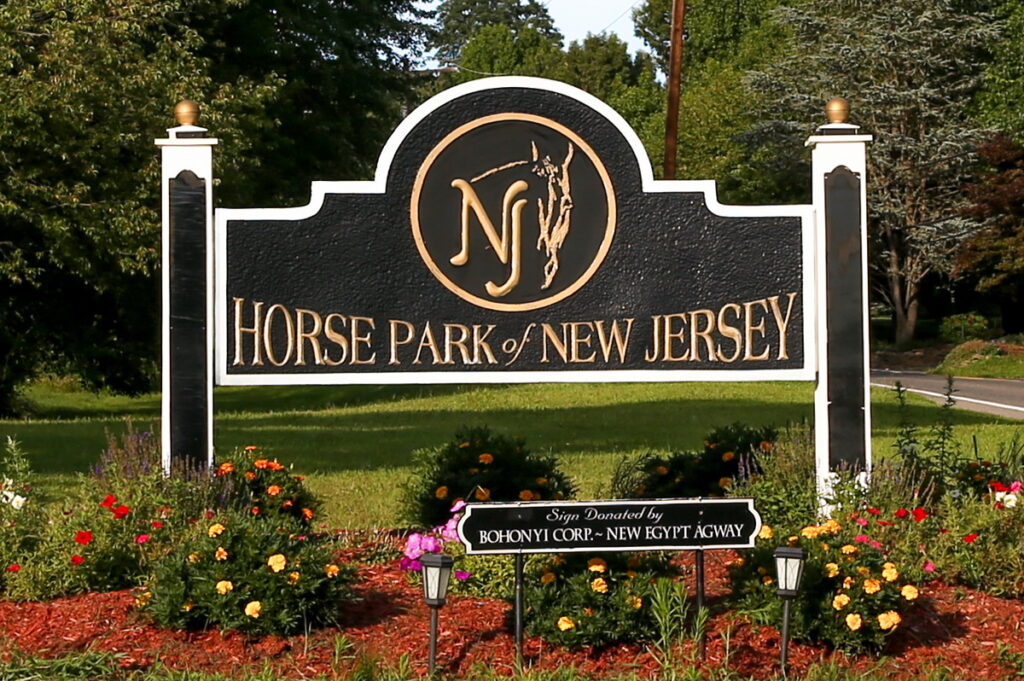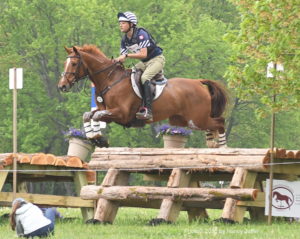You may regard the Horse Park of New Jersey as a place for competition, but it is also a place that is in competition–with state horse parks elsewhere that have similar missions.
They are located in Georgia, Virginia, Kentucky and Florida (and don’t forget the refurbished Fair Hill, Md., site that hosts the country’s new 5-star event). Private facilities in North and South Carolina and New York also are among venues that are looking to attract exhibitors, and huge expenditures at Wellington International and the World Equestrian Center in Ocala, Fla., have raised the bar even more.
One thing all these places have in common is up-to-date footing and stabling, while the New Jersey park in Monmouth County is working with footing in its rings that is not to the modern standard, and stalls from another era. The parks in other states “show off their state. New Jersey’s state animal is the horse, and our horse park is usable, but it’s sure nothing to show off,” said board member Marilyn Payne.
In its 35 years, the horse park has fallen farther behind because it hasn’t had the infusion of cash it needs to modernize.
“It’s a crisis for long term use and competition with other venues,” said Marilyn, a well-known trainer who has competed at the park as has her son, Doug, the highest-placed rider on the U.S. Olympic eventing team in Tokyo last year, and her daughter, Holly Payne Caravella, also a professional horsewoman.

Doug Payne taking a victory gallop in the grand prix ring at the Horse Park of New Jersey when he won at Jersey Fresh. (Photo © by Nancy Jaffer)
Marilyn cited the effort that went into the venue’s premier feature, the Jersey Fresh International Three-Day Event for two decades, but “we lost it because other horse parks had far better (arena) footing and stabling,” she contended.
Complaints about those two items have kept some equestrians living in other states from coming to the park, while they also have been responsible for a number of New Jersey horse owners’ decision to show elsewhere, even though the footing on the cross-country course is ideal.
The situation is particularly painful with rising gas and diesel prices, since it is more cost-effective and convenient for New Jersey equestrians to show in-state rather than driving for hours to ride under better conditions in other states. She notes that other facilities offer “destination events,” explaining “that’s something you want to be able to qualify for and get there because it’s such a fabulous venue.”
But now there is an opportunity for improvements at the park, and New Jersey residents can make them happen by contacting their state legislators and urging them to vote for Assembly Bill 3982, a fiscal year supplemental appropriation introduced by Assemblyman Ronald Dancer of Cream Ridge (R-12th Dist.)

Assemblyman Ron Dancer.
The bill calls for a $2.5 million allocation for footing for three arenas and two warm-up rings, with stabling improvement if any money is left over. The assemblyman noted the time is right to seek funding from the state because it has “unprecedented surplus levels,” as tax revenues increased $13.4 billion in two years, more than 35 percent higher than what was collected in 2020, according to nj.com.
The assemblyman had asked for a wish list of improvements the horse park board wanted to see, and it came to a total of $8.5 million.
“From that. he came up with that proposal of $2.5 million,” said park board vice president Ellen Clark, noting he felt that was the park’s best shot for its most-needed improvements.
Stabling is an issue because at the time the park was developed, horses generally were smaller than they tend to be today, she said. It’s important that the horses have enough space, and in the interests of disease prevention also can’t touch noses with other horses while in their stalls.
However, Dancer knows more needs to be done. He wants to see work begin on drafting a five-year capital plan for further improvements at the park after the end of this fiscal year on June 30.
Footing First is the company that would supply SRS footing. The firm said the footing, which includes silica sand,
“provides excellent traction, cushion and durability.”
Silica sand, according to the company, creates a surface with longevity and is a “blend has proven itself to be an excellent choice for all disciplines.” That’s important at a facility used for everything from dressage, show jumping, driving and eventing to saddlebreds and western.
“We felt this is the best solution for the park and our needs, to serve all our constituents,” said Ellen.
The assemblyman, the son of legendary harness horse driver and trainer Stanley Dancer, was behind a bill that sought to eliminate the tax on horse board in 2020. Although that made it all the way to the governor’s desk, he didn’t sign it. The legislator is hoping for better luck this time, but first the bill has to get out of committee.
He advises the way to do that is for everyone who would like the Horse Park to be improved to write to the legislators in their own district, or even call their offices. This is a proactive step that should be taken by anyone who wants to see the park live up to its potential.
They should also contact Assembly Speaker Craig Coughlin (District 19) and Senate President Nick Scutari (District 22). Click on this link to find the names and addresses of your legislators; all you have to do is fill in the name of the town where you live. And a note or call to Gov. Phil Murphy also will be beneficial. Contact him via email with this link. Here is a link that will enable you to read the details of the bill. A sample letter you can send is on the Horse Park website at www.horseparkofnewjersey.com; or click here
“We’ve never had funding available to address the needs of the Horse Park. The horse is the state animal, and we need to make a statement we are supporting our state horse park financially,” the assemblyman said, noting he is unaware of any direct state appropriation for the park during its history, aside from supplying the land where it is located.
“When you have a state horse park that is drawing from other states and regions, we want to be proud of what we have in New Jersey. Number one, we want to make sure everything is safe. The emphasis here is on safety and recognizing that the state of New Jersey has a fiduciary responsibility to address the needs of a state horse park,” he added, commenting, “I think it’s overdue.”
Because of the park’s name, people think it is funded by the state, which doesn’t provide an incentive to give money to the facility. The park is actually a non-profit that has to pay for itself. Ellen noted there has been talk about rebranding–perhaps with a named sponsor–but that’s only a thought at the moment.
“We try not to raise the rates at the park so much that people can’t afford to use it,” Ellen commented. She noted the park is still seeking other grants, through “every possible avenue.”


